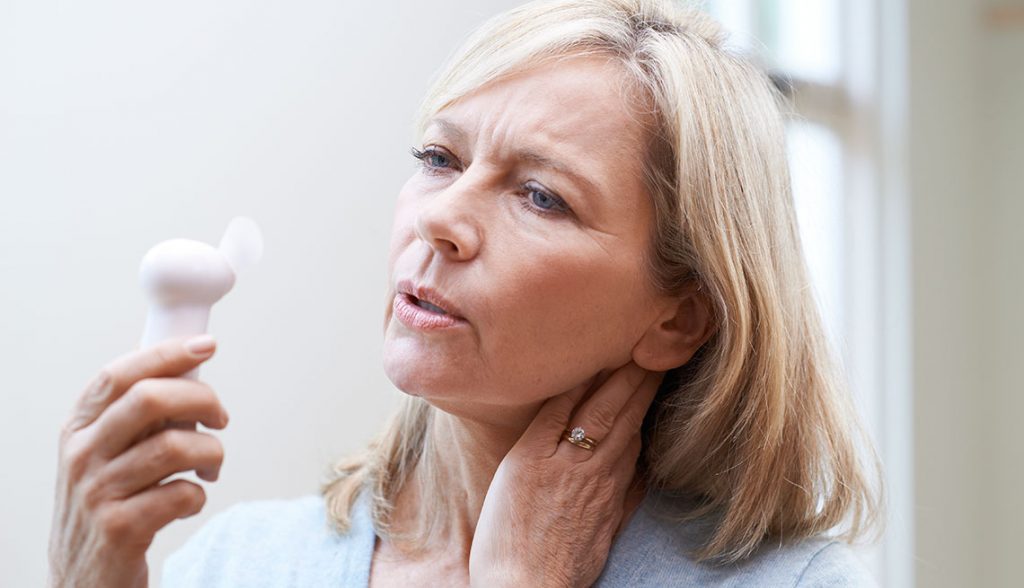What are the benefits of HRT?
Getty Images
Hormone replacement therapy is a medical procedure administered to individuals that are going through significant reproductive changes. The procedure is a common option for postmenopausal women because it provides the female with hormones that the body is no longer able to produce naturally. HRT is also an effective treatment for many menopausal symptoms, such as hot flashes and vaginal discomfort. Postmenopausal women often experience bone loss and fractures, a problem that is efficiently addressed by HRT.
While we’ll be focusing on the benefits of HRT, it is imperative to note that like any other medical procedure, it comes with its share of risks depending on the dosage, period of use, and type of hormones administered. For efficacy and excellent results, the doctor will tailor hormone therapy based on your individual needs. Your health and the effects of the HRT will be re-evaluated occasionally to ensure that the benefits you are likely to draw will outweigh the potential risks.
The benefits of hormone replacement therapy
The benefits of HRT vary depending on the type of hormones that are administered. Systemic estrogen replacement therapy is highly effective at treating hot flashes, night sweats, and vaginal discomforts, all symptoms that women often experience after menopause. It will help you sleep better and feel less pain during sex, aspects that are essential for a quality lifestyle. Systemic estrogen therapy also helps reduce vaginal dryness, burning, and itching.
According to various studies, systemic estrogen therapy also helps prevent bone fracturing, a condition that is caused by osteoporosis or the thinning of bones. It has also been found to significantly reduce the chances of dementia, which is often an old-age cognitive problem. Women that undergo estrogen therapy are also at a lower risk of developing cardiovascular problems because it promotes a healthy heart.
Systemic estrogen and progesterone therapy are also highly effective at lowering the risk of developing colon cancer.
Who might be a suitable candidate for the treatment?
Regardless of the risks posed by hormone replacement therapy, its benefits greatly outweigh the adverse effects if you experience moderate to severe menopausal symptoms. Moreover, if you have lost significant bone mass and other recommended treatments, like bisphosphonates, have not proven effective, then HRT may be your next viable option. HRT is further recommended for women below the age of 40 who undergo premature menopause and ovarian insufficiency.
You should know that having your ovaries removed and not taking estrogen therapy puts you at greater risk of experiencing anxiety, depression, osteoporosis, heart disease, parkinsonism, and even early death. HRT offers protective benefits to women that reach their menopause stage early in life, and consulting a doctor will help determine the personal risks that the procedure poses.
To determine whether or not HRT is an excellent treatment alternative for you, seek professional assistance for the analysis of your menopausal symptoms. You should stay in touch with your doctor because like any other procedure, HRT undergoes advancements that may render the recommendations made ineffective.
What it involves
The type of HRT varies based on the hormone involved; estrogen and progesterone, testosterone, or just estrogen. Estrogen-only HRT is administered to women with hysterectomy, a condition where the ovaries and uterus have been surgically removed. Such women no longer require progesterone.
Cyclical or sequential HRT is a treatment recommended for women with premature menopausal symptoms who are still experiencing their menstruation cycles. The estrogen and progesterone doses are given on a daily or weekly basis, depending on the doctor’s directions.
The continuous HRT, on the other hand, is given to postmenopausal women. It involves a continuous blend of estrogen and progesterone. The long-cycle HRT, though questionable safety-wise, is recommended to postmenopausal women with severe symptoms. The therapy, however, has been found to cause withdrawal bleeding after every three months of use.
Besides the HRT options discussed above, you can also rely on the locally available estrogen that comprises of vaginal tablets, creams, gels, skin patches, rings, etc. These are good options for addressing urogenital problems like vaginal burning, dryness, or irritation.
Due to the risks associated with HRT, doctors often prescribe a minimal dosage and advise their patients to stop using the supplements immediately once the symptoms are treated effectively.



